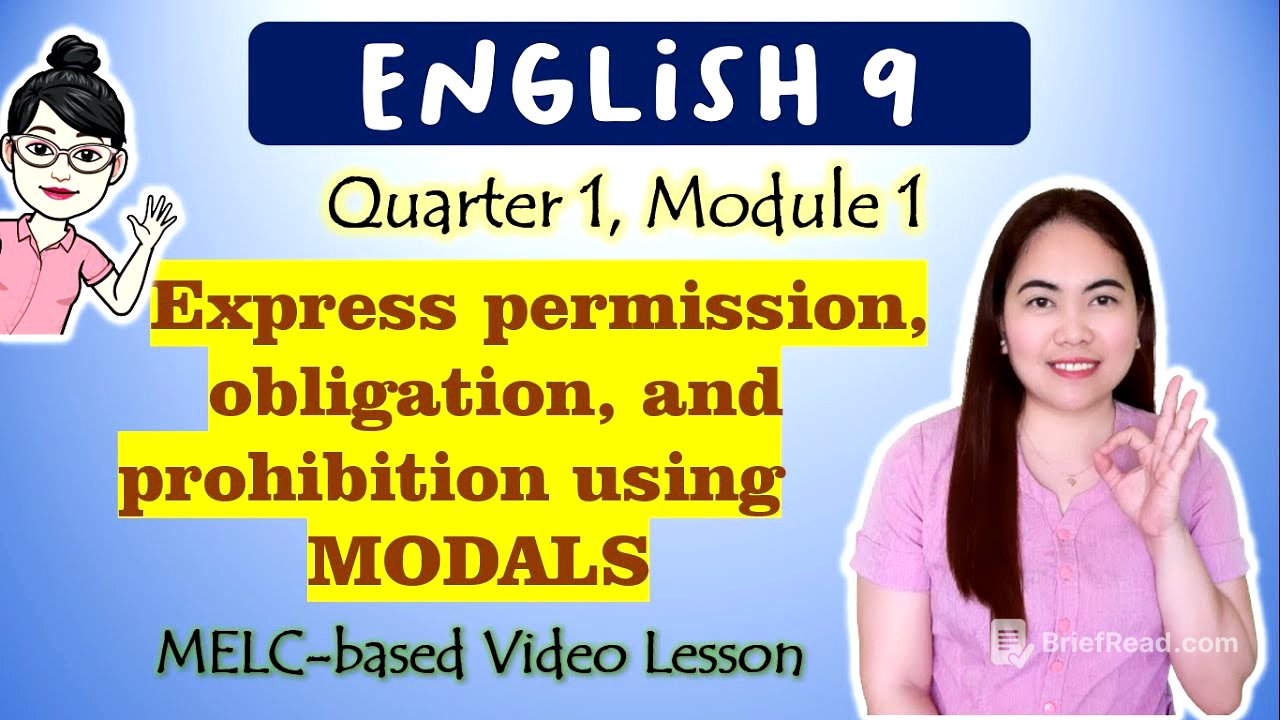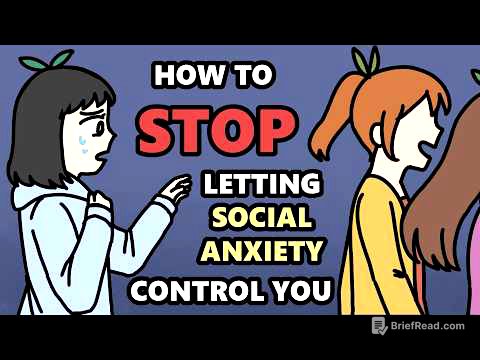TLDR;
This video lesson by English Teacher Ni Juan focuses on modal verbs and their use in expressing permission, obligation, and prohibition. It explains the specific modal verbs associated with each category, providing examples to illustrate their proper usage. The lesson also includes a brief exercise to test understanding.
- Modal verbs express possibility, certainty, ability, requests, and permission.
- Prohibition is expressed using "can't" (against the rules) and "mustn't" (speaker's rule).
- Obligation is expressed using "have to" (external obligation) and "must" (speaker's obligation). "Don't have to" indicates no obligation.
- Permission is expressed using "can" and "could."
Introduction to Modal Verbs [0:36]
The lesson introduces modal verbs as essential components of English grammar, used to express varying degrees of possibility, certainty, and ability. Modal verbs add extra information to the main verb, covering areas like making requests, offers, and asking for permission. The module aims to develop skills in using modals to express prohibition, obligation, and permission.
Modals of Prohibition [1:52]
This section explains prohibition as preventing or forbidding someone from doing something, using the modal verbs "can't" (or cannot) and "mustn't" (or must not). "Can't" typically indicates something against the rules or policies, as illustrated by the examples: "You can't go in that hotel wearing slippers," and "You can't drive in this country unless you are over 18." "Mustn't," on the other hand, usually implies that the speaker is setting the rule, such as "You mustn't use your phone in class," or "You mustn't sleep late."
Modals of Obligation [3:17]
The lesson moves to modals of obligation, focusing on "have to" and "must," both used to express a duty or commitment. "Have to" indicates that the obligation comes from an external source, like a rule or law, exemplified by "I have to work on Saturday" and "They have to wear their uniforms in school." The phrase "don't have to" signifies the absence of obligation, meaning something is optional, as in "You don't have to pay your bills in advance." Conversely, "must" expresses an obligation that comes from the speaker, such as "I must hand in my thesis by tomorrow" and "I must stop smoking."
Modals of Permission [5:35]
This part of the video discusses modals of permission, specifically "can" and "could," which are used to allow someone to do something. "Can" is most often used to ask for or give permission, while "could" is also possible but less common. Examples include "Can I borrow a pen?" "Can I go now?" and "Could I open the window?"
Exercises [6:18]
The video includes an exercise to test the viewer's understanding of the lesson. Viewers are prompted to identify whether underlined phrases in given sentences express permission, obligation, or prohibition. Examples include: "Passengers must not play music or talk on this part of the train," "You can't rent a car without a credit card," and "You have to show your ID before you can enter the place."









